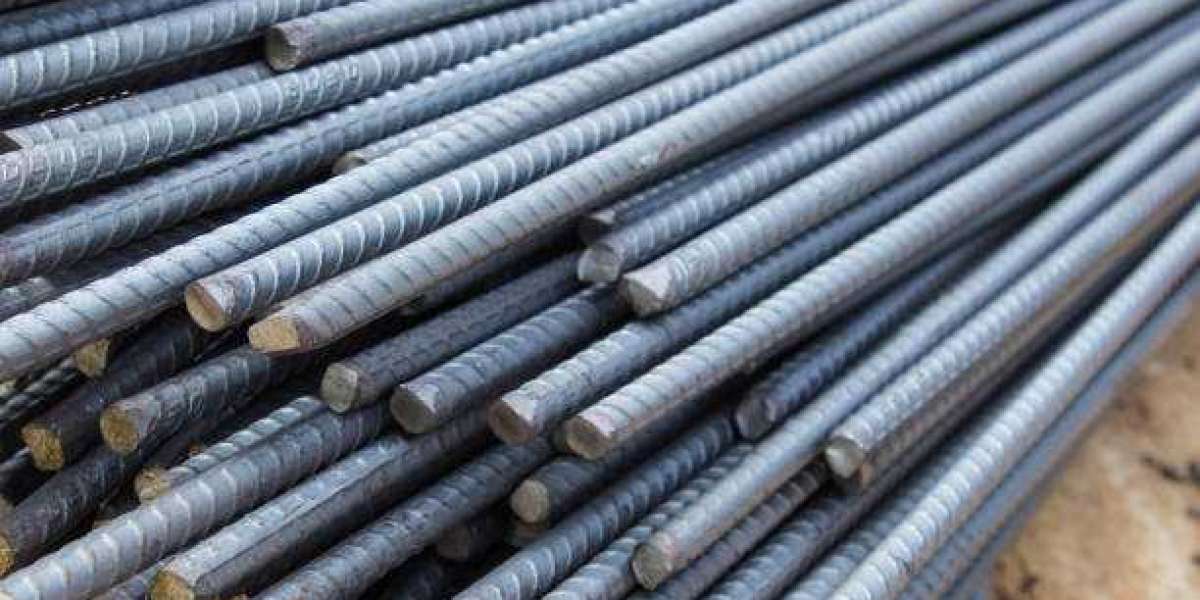Raw Material Costs: Iron Ore and Coking Coal
The primary inputs for producing TMT bars are iron ore and coking coal, both of which are subject to global market forces. The prices of these raw materials fluctuate due to changes in global demand and supply, making them volatile. For instance, disruptions in iron ore production in major exporting countries like Brazil and Australia can lead to shortages, driving up prices worldwide. Similarly, if demand for iron ore increases significantly from large economies such as China, prices may soar, which directly impacts the cost of TMT bars.
Coking coal, another essential raw material used in steel production, is also sensitive to international price fluctuations. The production of steel requires substantial amounts of energy, and the availability and cost of coking coal directly influence production costs. This results in price variations for TMT bars, which are passed on to end consumers. Indian steel producers like Tata Steel and JSW Steel often mitigate these fluctuations through long-term supply contracts, but global market conditions remain a determining factor in TMT bar pricing.
Production Costs and Technology
The manufacturing process of TMT bars involves advanced thermo-mechanical treatment, which enhances their quality and durability. The production costs, however, are influenced by several factors including energy prices, labor costs, and plant maintenance expenses.
Energy prices have a direct effect on steel production costs, as the steelmaking process is energy-intensive. Rising electricity and fuel prices can lead to an increase in the cost of producing TMT bars. Moreover, higher labor costs, as well as the costs associated with maintaining and upgrading production facilities, also add to the overall expense of TMT production.
Despite ongoing efforts by steel producers to optimize production technologies, streamline processes, and reduce waste, these cost elements continue to influence TMT bar price.
Market Demand: Construction and Infrastructure Growth
Market demand is a critical driver of TMT bar prices in India. The construction and infrastructure sectors, which are the largest consumers of TMT bars, play a key role in influencing pricing trends. Major infrastructure development projects such as Bharatmala (roadways development) and Sagarmala (port development) significantly boost demand for TMT bars, often leading to higher prices as construction activity intensifies.
During periods of rapid economic growth, construction projects surge, leading to increased demand for building materials like TMT bars. This heightened demand results in upward pressure on prices as suppliers respond to market needs. Conversely, economic slowdowns or delays in government-backed projects can reduce demand, leading to a decline in TMT bar prices.
Seasonal factors also influence market demand. For instance, construction activity typically slows down during the monsoon season, which can lead to a temporary dip in demand and a subsequent softening of prices during these months.
Competition in the Steel Industry
India's steel industry is highly competitive, with major players such as Tata Steel, JSW Steel, SAIL, and others constantly vying for market share. This competitive landscape creates pricing strategies that can vary significantly across different producers. Companies must balance production costs with market demand, while also maintaining a competitive edge in terms of product quality and pricing.
In addition, innovations in TMT bar manufacturing, such as improvements in corrosion resistance or enhanced tensile strength, can lead to differentiated pricing models. As steel producers invest in advanced technologies and new product features, these innovations may result in premium pricing for high-quality TMT bars.
The global market also plays a role in domestic competition. International steel producers exporting TMT bars to India add competitive pressure, affecting how Indian manufacturers price their products.
5. Government Policies and Regulations
Government policies have a profound impact on the pricing of TMT bars in India. Import duties, export tariffs, and environmental regulations all influence the cost structure of steel production. For example, import tariffs on raw materials like iron ore or coking coal can drive up production costs, while protective tariffs on steel products help safeguard domestic manufacturers, allowing them to maintain competitive pricing.
In addition, government policies that promote infrastructure development, such as subsidies or incentives, can drive up demand for TMT bars, leading to higher prices. On the other hand, stricter environmental regulations that require steel producers to invest in cleaner technologies can increase production costs, which may be passed on to consumers in the form of higher prices.
6. Transportation and Logistics
The cost of transporting steel from production facilities to construction sites also affects the price of TMT bars. Transportation costs can vary depending on fuel prices, transportation distances, and logistical efficiencies. Regions that are closer to production hubs typically benefit from lower transportation costs, which results in more competitive pricing for TMT bars.
Conversely, areas with limited transportation infrastructure or those located farther from steel mills may face higher logistical costs, contributing to increased prices for TMT bars in these regions.
Conclusion: Get the Best TMT Bars from SteelonCall
The pricing of TMT bars in India is shaped by a complex mix of global and domestic factors. From fluctuating raw material costs to production expenses, market demand, and government regulations, these elements create a dynamic pricing environment that affects every construction project.
At SteelonCall, we offer top-quality TMT bars at competitive prices. Whether you’re working on a residential building or a large-scale infrastructure project, we ensure that you get the best TMT bars delivered to your doorstep.
With just one call to 08062212000 or by visiting steeloncall.com, you can access a wide range of TMT bars sourced from leading manufacturers like Tata Steel, JSW Steel, and Vizag Steel. Our goal is to provide a seamless buying experience with exceptional customer service and fast delivery.








